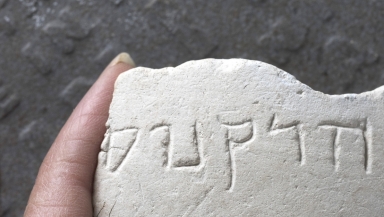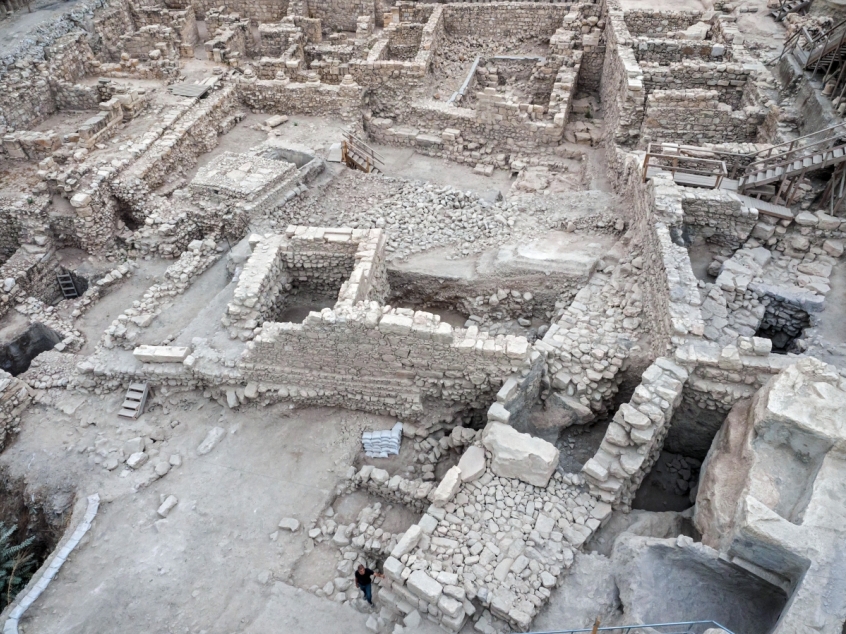
A stone bowl engraved with a rare Hebrew inscription and found in a car park in Jerusalem has created a new mystery: Who was Hyrcanus?
The Israel Antiquities Authority found the bowl with the inscription "Hyrcanus" in the Givʽati Parking Lot currently being excavated at the City of David. The dig is one of the largest taking place in Jerusalem.
The city is an ancient settlement in the Jerusalem Walls National Park believed to be the original urban heart of Jerusalem.
The bowl dates from the Hasmonean period, the century that preceded the Herodian dynasty, which ran from 37 BCE and witnessed the birth of Christ.
The engraving, "Hyrcanus", was a common name at that time and was also name of two of the leaders of the Hasmonean dynasty
Researchers said in a press release: "This is one of the earliest examples of the appearance of chalk vessels in Jerusalem. In the past, these vessels were widely used mainly by Jews because they ensured ritual purity."
Dr Doron Ben-Ami of the Israel Antiquities Authority and Professor Esther Eshel of Bar-Ilan University said: "This is one of the earliest examples of chalk vessels to appear in Jerusalem. These stone vessels were extensively used by Jews because they were considered vessels that cannot become ritually unclean."

The bowl was discovered beneath the foundations of a "miqwe", part of a complex of water installations that were used for ritual bathing.
The excavations, sponsored by the Ir David Foundation, have so far uncovered a wealth of artifacts from different periods. Those with writing on them always excite special interest and scholars are now debating whether Hyrcanus, was a high-ranking individual or just an ordinary citizen.
Ben-Ami and Eshel added: "We know of two personages from this period who had this name: John Hyrcanus, who was the grandson of Matityahu the Hasmonean and ruled Judea from 135–104 BCE, and John Hyrcanus II, who was the son of Alexander Jannaeus and Salome Alexandra. However, it is not possible to determine if the bowl belonged specifically to either of them."
About a year ago the remains of the Greek Seleucid Akra or fortress were exposed in the same dig. This was the famous fortress built by Antiochus IV Epiphanes to control the city and monitor the activity in the Temple, which was eventually conquered by the Hasmoneans.
The bowl was found a short distance from where the remains of the Akra were dug up.













